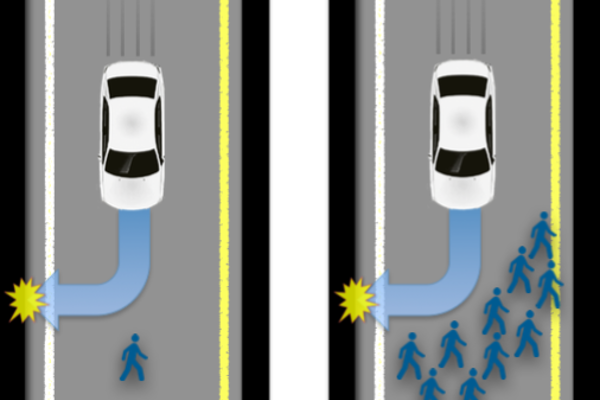
The Center for Ethics and Human Values and its co-sponsors present a one-day conference on Moral Algorithms and Self-Driving Cars.
The development of autonomous vehicles requires us to operationalize moral judgment. If vehicles are to make decisions that minimize harm in crash imminent situations, we need to address vexing questions of what constitutes the minimization of harm. Under what conditions is it permissible to cause harm to some in order to avoid harm to others? Are the numbers of victims and the severity of harm all that matters morally or does it matter, also, whether we cause the harm or merely allow it to occur? Does it matter whether the harm that we cause is the instrument of avoiding the harm we prevent or merely an unintended side-effect? These questions can no longer be confined to the seminar room. They arise in the laboratory as we design intelligent systems to make decisions formerly left to humans. To address these situations, we need to develop “moral algorithms,” algorithms that resolve “tragic choices” in morally defensible ways.
In a short TED-Ed presentation, "The Ethical Dilemma of Self-Driving Cars," Patrick Lin, nicely introduces the ethical problems that are brought to the fore as we turn critical decisional control over automated systems.
Recordings of the conference sessions are available here.
9:00a - 9:15a: Introductions
9:15a - 10:30a: Session 1: Current & Near-Future Technological Capabilities
What is the technology for autonomous vehicles capable of producing? What’s on the horizon for this technology?
- Noah Goodall (Transportation Research Council, Virginia)
- Selina Pan (Mechanical Engineering, Stanford)
- Moderator: Beth-Anne Schuelke-Leech (Public Policy, Ohio State)
11:00a - 12:15p: Session 2: Moral Values and Constraints
What are the relevant moral questions and issues at stake? What moral values are involved?
- Jason Millar (Philosophy, Carleton College)
- Wendell Wallach (Interdisciplinary Center for Bioethics, Yale)
- Moderator: Don Hubin (Philosophy, Ohio State)
12:15p - 2:00p: Lunch break
2:00p - 3:15p: Session 3: Psychological Aspects of Dilemmatic Choice
How do humans make decisions about how to resolve these questions and issues? How do they retrospectively evaluate their decisions?
- Kenworthey Bilz (Law, University of Illinois, College of Law)
- Bertram Malle (Cognitive, Linguistic, and Psychological Sciences, Brown)
- Moderator: Hal Arkes (Psychology, Ohio State)
3:45p - 5:00p: Session 4: Law & Public Policy
What challenges face us in accounting for the moral issues surrounding autonomous vehicles?
- Bryant Walker Smith (Law, South Carolina)
- Stephen Wu (Silicon Valley Law Group)
- Moderator: Margot Kaminski (Law, Ohio State)
5:00p - 6:00p: Reception
- Center for Interdisciplinary Law and Policy Studies
- Office of Research
- Decision Sciences Collaborative
- Center for Automotive Research
- Crash Imminent Safety University Transportation Center
- Translational Data Analytics Discovery Theme Initiative
With additional support from the John Glenn College of Public Affairs.
The conference is free and open to the public. No registration required.
